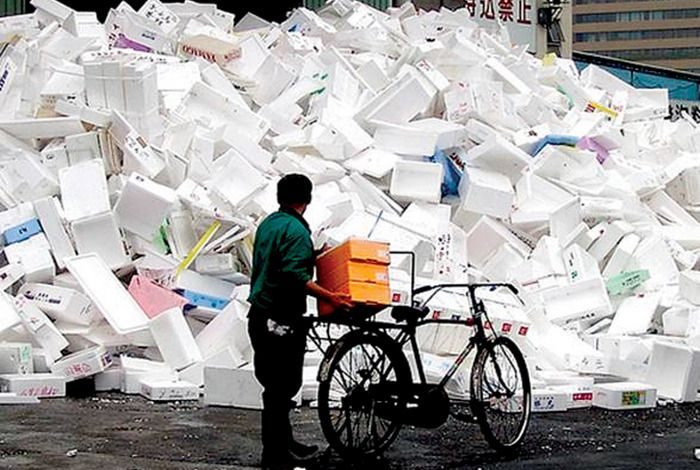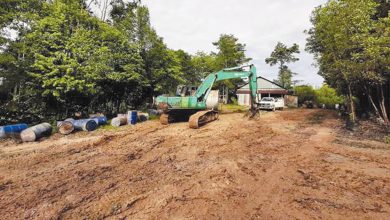We don’t really care about our environment


By Mariam Mokhtar


On January 1, 2014, Sibu became the first town in Sarawak to go green. Then, on May 15, 2015, Malacca decided to enforce a ban on polystyrene takeaway containers. The move started at government institutions, like school canteens, government buildings, cafes and food stalls run by local authorities.
Efforts are underway, around the country, to encourage Malaysian households to generate less waste. The move comes, as the world grapples with the problem of reducing waste without further damaging the environment.
Various studies have stated that the “traditional approach in Malaysia, and many developing countries towards end-of-life products is to landfill or incinerate them with considerable cost and damage to the environment (Ferguson and Browne, 2001; Hassan et al., 2000; Rock, 2002).” (sic)
The three Rs of waste control are reuse, reduction and recycling. In Penang, a research assistant once said that the state’s efforts to increase environmental consciousness, were aimed at the school children, who were taught the importance of waste recycling, and the damage that waste could do to the environment.
The children were told that plastic bags could end up in the stomachs of dolphins or turtles and kill them. Styrofoam packages could block drains and choke rivers. Polystyrene containers if heated, could give off carcinogens. Then, the young would help to educate their older relatives, with the knowledge they had gained at school.
Individuals are encouraged to recycle their rubbish, to reduce the harm on the environment. The message is backed by government campaigns which tell us to reduce and recycle our waste.
It transpires that the Perak state government broke the environmental protection rules.
In early May 2015, the Consumers Association of Penang (CAP) and Sahabat Alam Malaysia (SAM) allegedly stumbled upon an illegal garbage landfill site, in the leafy and sleepy cove of Teluk Mengkudu, in Manjung district.
SAM had been conducting field-work, in Manjung, when it made the discovery. SAM has since lodged a complaint with the Department of Environment (DOE). Mohamed Idris, the SAM president, said, “We are keen to find out what action the DOE will take, if it is found that the Manjung Municipal Council (MPM) had breached the law.”
A Level 4 Sanitary Landfill site had been prepared for Teluk Mengkudu, which is state owned land, in the Pengkalan Baharu sub-district. Both CAP and SAM claimed that on August 29, 2013, a Detailed Environmental Impact Assessment (DEIA) report was rejected by the DOE.
Mohamad Idris claimed that the DOE website did not show details of an amended DEIA being submitted for approval and questioned the legality of the site and its operation.
He accused the council of having no regard for the environment. He detailed the lack of a landfill liner, leachate treatment pond, and landfill gas collection facilities.
It was alleged that both the Manjung Municipal Council and private garbage trucks, had been dumping waste in the landfill, in an operation which was suspected to have begun in early 2015.
Ironically, the SAM president said that signboards beside the road leading to this illegal landfill site, warned people not to dump rubbish.
Mohamad Idris said that if the council had contravened the Environmental Quality Act 1974, then the local authority would be found guilty of committing an offence.
The Environmental Quality Act (EQA) 1974, Section 34A(8), of Act 127 states that “Any person who contravenes this section shall be guilty of an offence and shall be liable to a fine not exceeding five hundred thousand ringgit, or to imprisonment for a period not exceeding five years, or to both, and to a further fine of one thousand ringgit for every day that the offence is continued after a notice by the Director General requiring him to comply with the act, specified therein, has been served upon him.”
So, is the Manjung District Council guilty of committing an offence according to the EQA? Or will this environmental issue be swept under the carpet, or buried deep in this allegedly illegal landfill?


